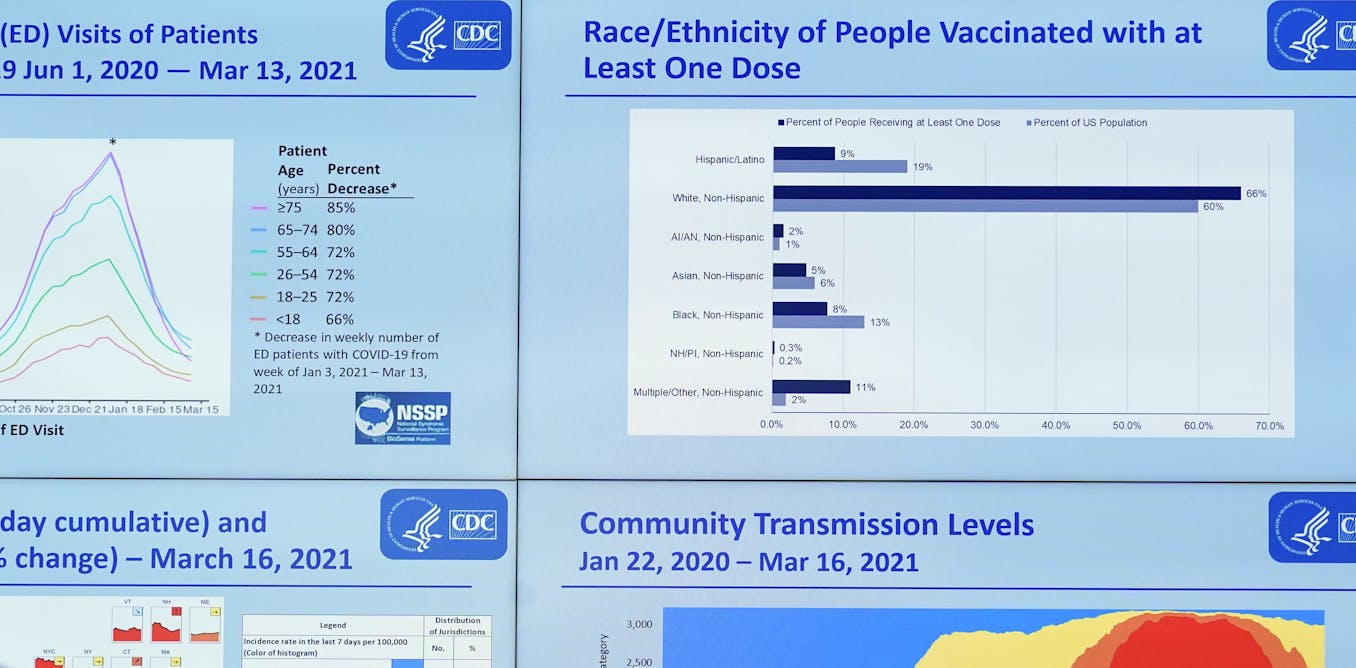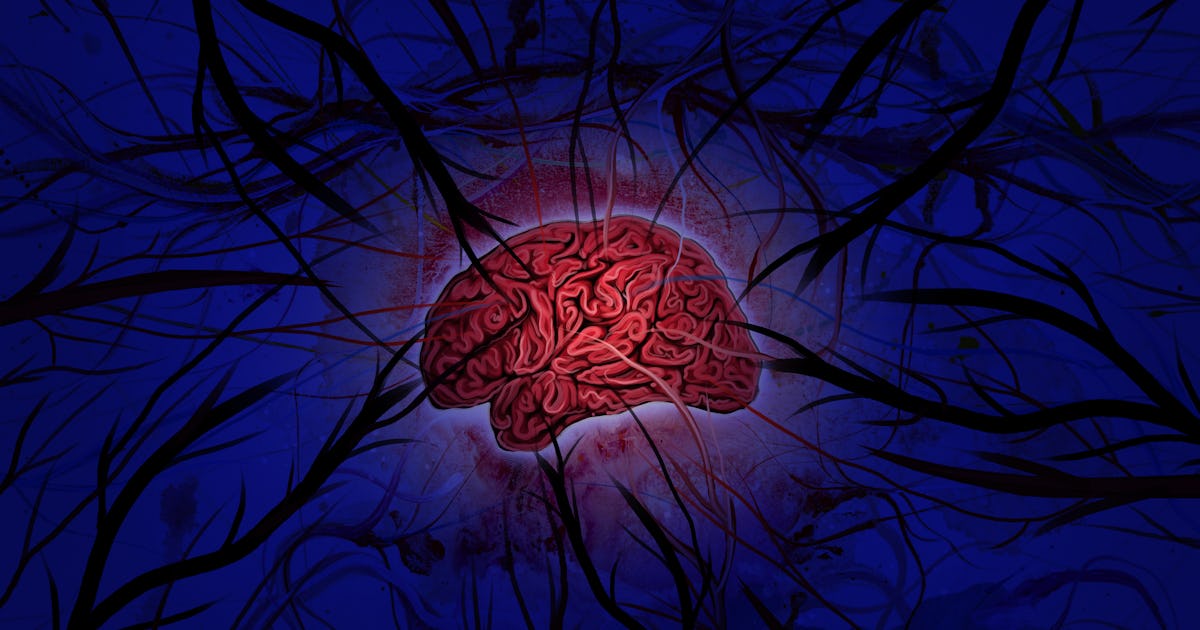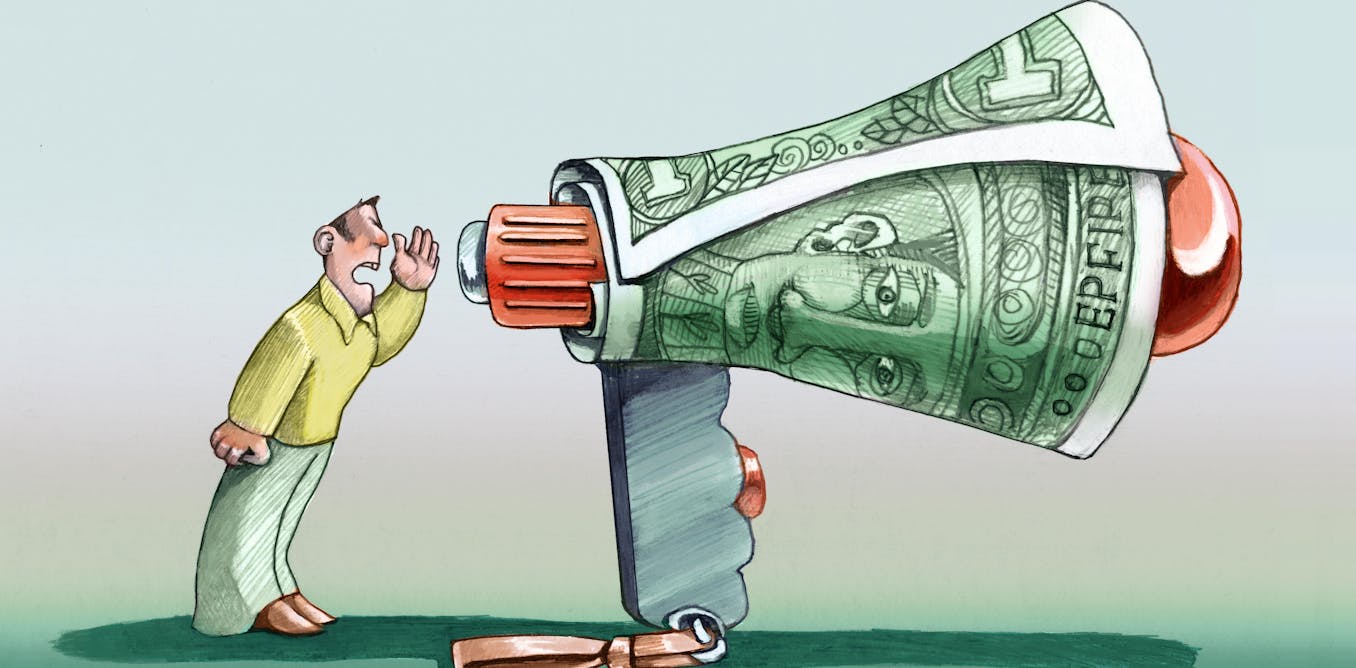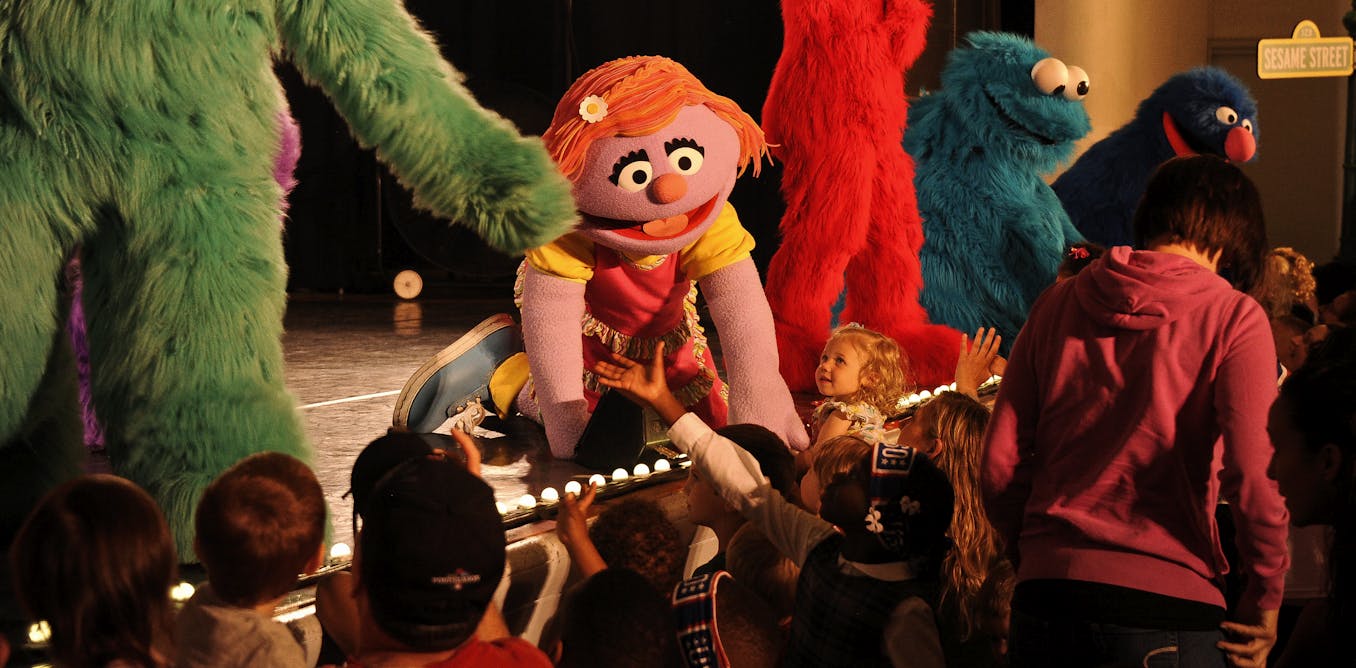   
CEO Picks - The best that international journalism has to offer!
 S40 S40Career Advice from Wildly Successful People - Harvard Business Review (No paywall)   Great job advice can be transformative. It can set you on a whole new trajectory, land you a new role, or even prompt you to make a big change. Through her podcast, Amantha Imber has had the opportunity to interview and learn from some of the most successful business leaders, musicians, writers, entrepreneurs, chefs, and entertainers. Here is some advice from them:I once sat across from a boss and listened as he gave me a brutally honest performance review. At the time, I was working as a consumer psychologist for a multi-national advertising agency. My job involved advising big brands on how to best persuade their customers to engage with their products and services.
Continued here
|
 S29 S29Your smart watch isn't a medical device - but it is tracking all your health data   For millions of people, smartwatches aren’t just a piece of technology. They can use them to take control of their health in ways never thought possible.As you go on your morning run, a smartwatch can monitor the rhythmic pounding of your feet and your heart’s steady beat. The watch can record the distance covered and the intensity of your workout, guiding you towards your fitness goals.
Continued here
|
 S41 S41 S30 S30
 S32 S32Universities Accord final report: what is it, and what does it recommend?   Federal education Minister Jason Clare has released the highly-anticipated Universities Accord final report, billing it as a “blueprint” to change higher education for decades to come.It is the first broad review of the sector since 2008. As The University of Melbourne’s Gwilym Croucher has noted it “could mean the most significant changes to higher education in a generation”.
Continued here
|
 S50 S50Ask Ethan: How long will life persist in our Universe?   One of the most humbling aspects of our Universe is the knowledge that, with enough time, all things will eventually pass away. New stars and stellar systems, while they’re expected to keep forming for many billions or even trillions of years to come, are on the decline, with the current star-formation rate only about 3% of what it was at its peak some 11 billion years ago. Planets like Earth around stars like the Sun, while relatively common today, will be extremely rare in the far future. And the longest-lived stars, even if they have Earth-sized planets around them, might be poor candidates for supporting life due to their incredibly active behavior.At some point in the far future, the last living world in the Universe will encounter its demise, signifying an end to what we know as biological activity within our cosmos. But when will this occur? And when and where will the last chances for intelligent life persist? That’s what Terry Dunn wants to know, writing in as follows:
Continued here
|
 S3 S3Humane Just Gave Everyone a Huge Incentive To Buy an AI Pin   Humane’s wearable Ai Pin is betting big on AI as the cure for phone addiction, returning us to being present in our lives instead of experiencing reality through a display in our hands. It’s a cool idea created by many ex-Apple vets, but the $699 price and additional $24 per month subscription required to ‘escape’ your phone is a considerable barrier to entry.Good things come to those, uh, who are early adopters. Humane’s head of new media, Sam Sheffer, announced in a video that the company’s making the first three months of the device’s required subscription (a $72 value) free for everyone who purchased the Ai Pin. “It’s a token of gratitude. It’s our way of saying thanks to our early adopters.”
Continued here
|
 S45 S45Hayao Miyazaki's Anti-war Fantasia - The Atlantic (No paywall)   Once, in a windowless conference room, I got into an argument with a minor Japanese-government official about Hayao Miyazaki. This was in 2017, three years after the director had announced his latest retirement from filmmaking. His final project was supposed to be 2013’s The Wind Rises, a World War II movie about a man who loves building airplanes but struggles to accept the destruction they bring. The official was glowering, talking into his coffee cup about how Miyazaki, an avowed pacifist, should’ve stuck to fantasy and stayed out of politics; he found the film to be a naive affront to the complexities that made war, in his view, a necessity. I contended that every Miyazaki movie contains some sort of societal critique, whether about environmental collapse, the ills of industrialism, or the cyclical nature of conflict. But the bureaucrat wouldn’t listen.I’ve been thinking of this encounter since Miyazaki’s return to directing, with The Boy and the Heron, which is nominated for Best Animated Feature at this year’s Oscars. What must that official think of this movie, which deploys fantasy to present a powerful anti-war stance? A sprawling journey through a magical world, The Boy and the Heron features many of Miyazaki’s classic character types and plot devices. But where other directors might turn to overt, didactic arguments to make their point, Miyazaki uses a more accessible, intuitive dream logic. By inviting viewers into his story at the emotional level, he asks us to inhabit the perspective of his protagonist: a boy dealing with the destruction of his city and his mother’s death. The movie doesn’t pontificate that war is evil so much as it illustrates how war can destroy that most precious of things—the innocence of a child’s soul.
Continued here
|
 S18 S18The Russia-Ukraine War has caused a staggering amount of cultural destruction - both seen and unseen   And in the case of Russia’s full-scale invasion of Ukraine, now about to enter its third year, the remarkable destruction of Ukrainian history and heritage since 2022 hasn’t been a matter of collateral damage. Rather, the Russian military has deliberately targeted museums, churches and libraries that are important to the Ukrainian people. It’s impossible to document the full extent of the destruction, particularly in the active military zones in eastern and southern Ukraine. However, as archaeologists and filmmakers, we wanted to do what we could. This meant traveling to liberated villages, museums and churches in northern and eastern Ukraine adjacent to regions with ongoing fighting.
Continued here
|
 S42 S42Are You Being Emotionally Manipulated at Work? - Harvard Business Review (No paywall)   Research has shown that emotional manipulation (EM) can significantly impact individuals’ well-being and productivity. It can systematically influence cognitive control, which is crucial for effective decision-making and problem-solving, and can also affect individuals’ interpersonal relationships and overall mental health, further impacting their productivity and satisfaction in the workplace. If you think you’re being emotionally manipulated at work, try these five strategies to protect yourself — and your workplace.Sarah, a former client of mine, was an experienced professional known for her dedication and hard work ethic. Her manager shared a personal story of their own struggles with workload and implied that if Sarah were to take on additional work, she would demonstrate true loyalty and commitment to the team and make an impression on leadership. Sarah began to feel an increased sense of obligation, in addition to guilt and stress. She felt manipulated into a situation where saying no seemed like a betrayal and lack of commitment, even though the extra workload affected her well-being and even her own deliverables.
Continued here
|
 S31 S31Violence, dominance and passion on the big screen - and other things you should see this week   This article was first published in our email newsletter Something Good, which every fortnight brings you a summary of the best things to watch, visit and read, as recommended and analysed by academic experts. Click hereto receive the newsletter direct to your inboxI am very particular about horror films. I want films with a meaty story that haunts, unnerves and, of course, scares me but is not a total gore fest. I don’t like to see people slashed to pieces, especially if there’s no real plot. I enjoy horror films like The Shining, The VVitch, It Follows, Tale of Two Sisters and Midsommar. So, when my colleague Anna sent me the trailer for Out of Darkness, I knew I would love it.
Continued here
|
 S39 S39Here are ways retirees can protect nest eggs during a stock market rout   If a retiree continues to pull the same dollar amount from that portfolio after stocks suffer a prolonged decline, that share could jump to 7% or 8%, for example â a perhaps-unsustainable amount that inadvertently hobbles the portfolio, said David Blanchett, head of retirement research at PGIM, the investment management arm of Prudential Financial.And while Federal Reserve economists expect the U.S. to tilt into a mild recession later this year, it's not guaranteed. Neither is a stock-market pullback if an economic downturn does materialize; while stocks frequently contract during recessions, there are instances (like in the early 1980s and 1990s) when that didn't happen, according to a Morningstar analysis.
Continued here
|
 S4 S460 Weird Things That Make Your Home So Much Better for Under $30   From quirky decor that'll add personality to your home to smart kitchen gadgets that’ll make your life easier to luxurious products at a steal — everything on this list is designed to make your home so much better without breaking the bank. Sure, some of these products are strange and unusual, but they are sure to improve your life and make your home cooler and more functional. Some can make a frustrating task easier, others will organize a cluttered space, and a few will simply bring you joy. You'll be happy you added them to your cart, especially because they’re so darn cheap.Upgrade your boring kitchen sponges with these fun sponges that look like perched birds. Each pack includes four sponges that are designed to look like birds, one suction cup, and one wooden perch. The sponges are designed with a hole at the bottom that allows them to attach onto the perch that looks so cool and allows the sponges to dry. Plus, the sponges are designed with four layers that are durable and tough on messes.
Continued here
|
 S28 S28Javier Milei: Argentina's new president presses ahead with economic 'shock therapy' as social unrest grows   Only weeks into his term, Argentina’s new president, Javier Milei, seems to be making good on his promise to put a chainsaw to the country’s crisis-ridden economy. In his inaugural address, Milei told the nation: “There is no alternative to shock.” He dissolved half of the country’s ministries days later, and implemented a 50% devaluation of the peso.But amid massive spending cuts, prices continue to spiral. Argentina’s annual rate of inflation has reached a three-decade high of 254.2%. Milei blames the poor economy on years of mismanagement, and has warned his compatriots to expect more pain before any gains will be felt.
Continued here
|
 S43 S43 S14 S14 S23 S23 S47 S47Ukraine Needs More Fighters - Foreign Policy (No paywall)   Now, the need to rotate exhausted troops out of fighting is running up against a growing manpower shortage. Ukraine’s armed forces need more fighters: The country’s General Staff requested 500,000 additional men be mobilized to supplement the already 1.1 million-strong military, President Volodymyr Zelensky said during a press conference on Dec. 19.Further mobilization is broadly unpopular and has proved politically sensitive. Late last year, the matter was at the heart of the first open disagreement between Zelensky and his then-military chief Valery Zaluzhny, as the Ukrainian president proved reluctant to increase the pace of conscription. “Personally, I don’t see the point in mobilizing half a million people right now,” Zelensky told Britain’s Channel 4 News in an interview published on Jan. 20. Zaluzhny, who had been pushing for more troops, was dismissed on Feb. 8.
Continued here
|
 S48 S48Can Reading Make You Happier? - The New Yorker (No paywall)   Several years ago, I was given as a gift a remote session with a bibliotherapist at the London headquarters of the School of Life, which offers innovative courses to help people deal with the daily emotional challenges of existence. I have to admit that at first I didn’t really like the idea of being given a reading “prescription.” I’ve generally preferred to mimic Virginia Woolf’s passionate commitment to serendipity in my personal reading discoveries, delighting not only in the books themselves but in the randomly meaningful nature of how I came upon them (on the bus after a breakup, in a backpackers’ hostel in Damascus, or in the dark library stacks at graduate school, while browsing instead of studying). I’ve long been wary of the peculiar evangelism of certain readers: You must read this, they say, thrusting a book into your hands with a beatific gleam in their eyes, with no allowance for the fact that books mean different things to people—or different things to the same person—at various points in our lives. I loved John Updike’s stories about the Maples in my twenties, for example, and hate them in my thirties, and I’m not even exactly sure why.But the session was a gift, and I found myself unexpectedly enjoying the initial questionnaire about my reading habits that the bibliotherapist, Ella Berthoud, sent me. Nobody had ever asked me these questions before, even though reading fiction is and always has been essential to my life. I love to gorge on books over long breaks—I’ll pack more books than clothes, I told Berthoud. I confided my dirty little secret, which is that I don’t like buying or owning books, and always prefer to get them from the library (which, as I am a writer, does not bring me very good book-sales karma). In response to the question “What is preoccupying you at the moment?,” I was surprised by what I wanted to confess: I am worried about having no spiritual resources to shore myself up against the inevitable future grief of losing somebody I love, I wrote. I’m not religious, and I don’t particularly want to be, but I’d like to read more about other people’s reflections on coming to some sort of early, weird form of faith in a “higher being” as an emotional survival tactic. Simply answering the questions made me feel better, lighter.
Continued here
|
 S49 S49Nvidia's CEO On What It Takes To Run An A.I.-Led Company Now   There’s no question that the biggest business story of 2023 is artificial intelligence – not just all of us using generative AI tools like ChatGPT on our own but what those advances mean for how companies can collect and use data to improve decision making, R&D and more. These developments are driving a new, exponentially faster era of computing, and our guest today is at the forefront of this warp-speed transition.ADI IGNATIUS: So Jensen, NVIDIA is producing technology that is quite literally driving the future, and I’m talking about the chips and processors that are driving innovation in AI and generative AI. I’d love your view as a sort of hardware guy. What’s your thought on AI, on gen AI? Do you think it will revolutionize how we work and play, or is it simply too soon to tell?
Continued here
|
 S15 S15How governments handle data matters for inclusion   Governments increasingly rely on large amounts of data to provide services ranging from mobility and air quality to child welfare and policing programs. While governments have always relied on data, their increasing use of algorithms and artificial intelligence has fundamentally changed the way they use data for public services.These technologies have the potential to improve the effectiveness and efficiency of public services. But if data is not handled thoughtfully, it can lead to inequitable outcomes for different communities because data gathered by governments can mirror existing inequalities. To minimize this effect, governments can make inclusion an element of their data practices.
Continued here
|
 S33 S33 S37 S37The challenges of steering a hypersonic plane - The Economist (No paywall)   Mach 5 is the new Mach 1. Just as aviators of old sought to break the sound barrier and travel supersonically, the search is now on for reliable and controllable ways to travel “hypersonically”, generally defined as more than five times the speed of sound. While re-entering spacecraft and intercontinental ballistic missiles have rushed through the atmosphere at this speed for decades, they are not very steerable. The dream is of vehicles that can be manoeuvred in a manner more like conventional aircraft. At first, these machines would be military missiles. But some dreamers suggest hypersonic passenger flight might eventually be possible.
Continued here
|
 S38 S38The Awfulness of Elite Hypocrisy on Marriage - The Atlantic (No paywall)   “No” is the answer I received from about two-thirds of my sociology-of-family class at the University of Virginia last spring, when I put that question to them in an anonymous online poll. The class of approximately 200 students was diverse geographically, racially, and ethnically. But on questions like this one—asking whether society should promote or value one type of family structure over another—the students I teach at UVA generally say it shouldn’t.In one sense, these answers are unsurprising. The great majority of my students, about 80 percent, report hailing from an intact family with married parents. (My class at UVA is not exceptional in this regard: 73 percent of students at elite colleges and universities nationally were born to married parents who have since stayed married, versus 51 percent of high-school seniors across the country.) At the same time, a majority of my students are liberal or progressive on many social issues—they are, at a minimum, nonjudgmental about lifestyles unlike their own.
Continued here
|
 S5 S515 Years Ago, an Underrated Sci-Fi Show Revealed a Bizarre Truth About the Human Brain   If you’ve ever wanted a fresh start in life, look no further than the late 2000s sci-fi series Dollhouse for what a true clean slate could be like. Released 15 years ago this February, Dollhouse was an underrated (and short-lived) two-season series that explored the consequences of wiping a person’s entire memory. In the show, a company employs “Actives” or human dolls to work for wealthy individuals. Before each new assignment, the dolls get their memories destroyed, allowing them to seamlessly turn from assassins one day to lovers the next.While we don’t currently have the technology to Control-D human memory, we are far closer to that reality than you might think. Lawrence Patihis, a senior lecturer at the University of Portsmouth who researches memory distortions, tells Inverse that it’s entirely possible to implant false memories into someone’s mind. In fact, there’s a pretty good chance you’ve “recalled” a fake memory at some point.
Continued here
|
 S21 S21Early COVID-19 research is riddled with poor methods and low-quality results - a problem for science the pandemic worsened but didn't create   Studies comparing COVID-19 papers with non-COVID-19 papers published in the same journals found that COVID-19 papers tended to have lower quality methods and were less likely to adhere to reporting standards than non-COVID-19 papers. COVID-19 papers rarely had predetermined hypotheses and plans for how they would report their findings or analyze their data. This meant there were no safeguards against dredging the data to find “statistically significant” results that could be selectively reported.Such methodological problems were likely overlooked in the considerably shortened peer-review process for COVID-19 papers. One study estimated the average time from submission to acceptance of 686 papers on COVID-19 to be 13 days, compared with 110 days in 539 pre-pandemic papers from the same journals. In my study, I found that two online journals that published a very high volume of methodologically weak COVID-19 papers had a peer-review process of about three weeks.
Continued here
|
 S26 S26Joe Biden has raised more than Trump so far   Americans spend mind-blowing amounts of money on their elections. According to the Federal Election Commission (FEC) in the 2016 presidential election cycle the candidates spent a total of US$1.6 billion (£1.2 billion). This rose to US$4.1 billion in the 2020 cycle, and it is likely to be much higher in the current election campaign.Political campaigns in the US are very expensive because they run on for a long time and involve costly advertising. As soon as a new president is elected, preparations begin for the midterm congressional elections two years later, as well as the next round of presidential primaries.
Continued here
|
 S27 S27Slouching isn't as bad for you as you might think   Often a posture assigned to teenagers and disaffected youth, slouching is traditionally considered to be a “bad” posture – with some claiming it will damage your spine and cause pain.The term itself hails from medieval Norse meaning “lazy fellow” – and later the middle English word meaning “walking, sitting or standing with a loose attitude”.
Continued here
|
 S46 S46Here's why sodium-ion batteries are shaping up to be a big technology breakthrough   "Imagine pulling into the station. There are a whole bunch of chargers there and all the cars plug in at the same time," said Colin Wessells, CEO and co-founder of Natron. "Now the power load on the electric grid is enormous. It can be really hard for the grid to support all those vehicle chargers simultaneously. And so a lot of station operators are actually moving to a model where they would put big stationary batteries in the station to provide those pulses of power to charge the vehicles."
Continued here
|
 S2 S2This Cargo E-Bike Has An Impressive Range That Can Outlast Some EVs   Most cargo e-bikes like the UBCO 2x2 we recently reviewed get around 50 to 75 miles of range. It’s more than enough if you’re riding around in a city. But what if you want to take an e-bike on a real adventure that stretches beyond the perimeters of downtown? Tern has just the long-range e-bike for you.Tern’s latest premium e-bike, the Orox, can tackle off-roading while carrying all your gear. On top of that, the Orox runs on two batteries, which translates to more than 186 miles of range. Anywhere near 200 miles on a single charge is below average these days for an EV, but we don’t see those kinds of range numbers with e-bikes.
Continued here
|
 S17 S17 S24 S24Vladimir Putin has never understood why Ukrainians want to control their own destiny   Ten years ago, Ukraine looked to the democratic world like a faraway place. But this was just before Ukraine’s “Euromaidan” protests toppled the country’s pro-Kremlin president Viktor Yanukovych, paving the way for the election of a pro-western president, Petro Poroshenko.As scholar of east European studies Peter Vermeersch has put it, whereas Ukraine was once seen as “the western edge of eastern Europe”, since Russia’s full-scale invasion of Ukraine on February 24 2022, the country has transformed in the eyes of the world into “the eastern edge of western Europe”. It was a transformation that had taken place not least because of the popular will of much of the Ukrainian people.
Continued here
|
 S25 S25 S44 S44How Women Can Get What They Want in a Negotiation - Harvard Business Review (No paywall)   Based on a growing body of research on gender in negotiations, combined with burgeoning research on positivity and mindfulness, several strategies can help women negotiate more effectively. Investing effort in preparation for a negotiation — knowing what you want and why, thinking through acceptable alternatives, and developing specific strategies for being persuasive — can significantly increase your confidence and competence. Prior to a negotiation, women can use positive priming (thinking about something positive or engaging in a joyful activity) to increase positive emotions, resulting in greater creativity, openness, and willingness to collaborate, all of which are essential to successful negotiation. With increased confidence, women will be more likely to assert their needs. Confidence may also reduce anxiety about negotiating, which women experience to a greater degree than men. This can increase the likelihood that women choose to enter a negotiation to begin with. And a greater awareness of the emotions of others during a negotiation can help women better understand their needs and interests, which can make it easier to find integrative solutions.Tara, an MD/PhD who works for a large public university, contacted one of us (Suzanne) a few weeks after participating in a negotiation workshop she ran, wanting to share some positive news about successfully negotiating an 11% pay increase. A faculty member for six years, she had come to learn that she was not only underpaid but also had a higher teaching and clinic load than others in her group. She, like many women, accepted her job offer without negotiating.
Continued here
|
 S9 S925 Years Later, the Most Influential Horror Game Ever Still Holds Up   There’s something alluring about small, sleepy towns that compel visitors to slow down and savor their foggy landscapes and labyrinthine alleyways, removed from the urgency of urban cityscapes and the hyperreal qualities of existence. However, some towns sometimes carry dark, twisted legacies, hiding unsavory secrets beneath their carefully constructed dreamy exteriors. One such town is Silent Hill, an outwardly welcoming tourist resort in Maine that secretly harbors terrible conspiracies about ritualistic sacrifices and the awakening of something unspeakably sinister.Published by Konami in 1999 for PlayStation, Silent Hill altered the psychological survival horror landscape by offering a gameplay experience that relied heavily on ambient scares and latent symbolism. The game’s soundtrack by Akira Yamaoka lends a surreal, unsettling quality to the in-game exploration, where players control Harry Mason, an everyman lost in this mysterious town. Helming a story that functions on dream logic, Silent Hill blurs the lines between grounded reality and nightmarish visions, leading to a disorienting journey punctuated by sordid secrets and mythical beasts.
Continued here
|
 S16 S16War in Ukraine at 2 years: Destruction seen from space - via radar   As soldiers and citizens provide information from the front lines and affected areas of the war in Ukraine – two years old as of Feb. 24, 2024 – in quasi-real time, an active open-source intelligence community has formed to keep track of troop activity, destruction and other aspects of the war. Remote sensing complements this approach, offering a safe means to study inaccessible or dangerous areas. For example, seismologists have documented the high pace of bombardments and firing of artillery around Kyiv during the first few months of the war.
Continued here
|
 S36 S36People with Myalgic Encephalomyelitis/Chronic Fatigue Syndrome May Have an "Exhausted" Immune System - Scientific American (No paywall)   Myalgic encephalomyelitis/chronic fatigue syndrome (ME/CFS) is a debilitating multisystem disorder from which adults rarely recover. Researchers have struggled to find changes in the body that underlie the illness, which often appears following an infection, partly because it may arise in different forms. Now scientists at the National Institutes of Health (NIH) have completed perhaps the most comprehensive study of ME/CFS to date by examining a carefully selected group of participants. In the study, which was published today in Nature Communications, the researchers observed changes that reveal how the disease disrupts the immune and nervous systems.In addition to having overwhelming fatigue, people with ME/CFS experience a range of other symptoms such as brain fog, hypersensitivity to light and short-term memory loss. Medical professionals have historically dismissed the condition as a psychosomatic disorder by implying the disease lacks a physiological basis.
Continued here
|
S1The Most Ludicrous Crime Caper of 2024 Has Been Decades in the Making   When Ethan Coen and his wife Tricia Cooke first conceived of Drive-Away Dolls at the turn of the century, they had a very specific vision of a wild lesbian crime caper that would riff on the ’70s exploitation movies of their youth. It would star some of the hottest stars of the early aughts, like Selma Blair and Chloë Sevigny. And it would have a bold, cheeky title: Drive-Away Dykes.
Though the film would eventually shed that name and rotate in a new cast of stars, the script remained mostly intact over the two decades since it was first pitched, according to star Geraldine Viswanathan.
Continued here
 S6 S6A Cell Biologist Reveals the Forgotten Connection Between This Fat Byproduct and Longevity   My research team and I wondered whether reducing harmful fat byproducts might help slow the aging process and consequently stave off common diseases.The journey of aging brings with it an unavoidable reality for many: an increased accumulation of body fat. Though much of society seems mostly focused on the aesthetics of being overweight, doctors look past any cosmetic concerns to focus on the health implications of fat byproducts in the body.
Continued here
|
 S7 S7Netflix Just Quietly Added the Quirkiest Adventure Movie of the Decade   If you discovered a tiny sentient talking shell while staying at an Airbnb, your first inclination would probably not be to befriend it and make a documentary about it. Yet it’s easy to accept the inherent goodness of the title character in Marcel the Shell With Shoes On, and to be drawn into his unlikely world. That’s the power of the movie from director, co-writer and star Dean Fleischer Camp, who takes a character created for cute online videos and builds a quietly profound story around him.Fleischer Camp created Marcel with Jenny Slate, who also provides Marcel’s voice, in an engaging performance that mixes childlike wonder with seasoned wisdom. That balance is key to the movie’s brilliance, as it draws the audience in with a goofy-looking character and the inherent humor of such a tiny creature attempting to navigate a world that’s so much bigger than he is. There’s a melancholy undercurrent to all of Marcel the Shell’s humor, as Marcel’s ingenuity and optimism come from the necessity of facing life without the family he’s seemingly lost forever.
Continued here
|
 |
TradeBriefs Publications are read by over 10,00,000 Industry Executives About Us | Advertise Privacy Policy Unsubscribe (one-click) You are receiving this mail because of your subscription with TradeBriefs.
Our mailing address is GF 25/39, West Patel Nagar, New Delhi 110008, India |
|




















































































































